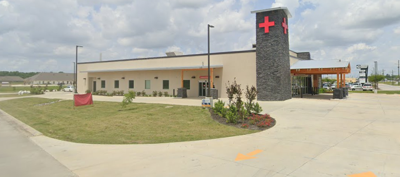A privately owned, five-year-old hospital in Prairieville closed Sunday night after state regulators revoked its license under rules designed to prevent freestanding emergency rooms, according to a regulatory letter to the facility.
The closure of Prairieville Family Hospital will mean the loss of 90 full- and part-time jobs, of several million dollars for hospital investors, and of an emergency room in a relatively sparse area for medical services between the East Baton Rouge Parish line and La. 73 at Interstate-10.
In addition to the emergency room and outpatient imaging and lab services, the 10-bed hospital treated patients with strokes, heart and respiratory problems, abdominal issues, severe infections and other health concerns.
Also known as Prairieville General Hospital, the 10,000-square-foot facility in the Commerce Center development is just south of the intersection of Airline Highway and La. 42 in one of the busier traffic zones in Ascension Parish.
Dr. John McLean, the hospital's chief executive officer, said an unnamed state official initially led him to believe that his hospital would be granted an extension to meet legal requirements before it was forced to close. The five-page revocation letter the hospital received from the state concluded that it had too few inpatients to be considered a full-fledged hospital.
McLean said he met with state Department of Health officials on April 22 to present a corrective action plan to bring the hospital into compliance, but he said state officials remained unconvinced and told him he would have to close by Monday.
McLean, who is one of the partners in the hospital but is no longer a practicing physician, said he believed his hospital could have met the minimum benchmarks within the next six months.
"But I get it. They have the law. They have to uphold what is written," he said.
The closure of the independent, physician-owned hospital comes as bigger regional or statewide players, Baton Rouge General and Ochsner, have made recent moves into the Ascension medical market that had been dominated for years by Our Lady of the Lake Health and its local predecessor in Gonzales.
McLean said he is looking for a large medical investor to potentially take over the building and restart the operation.
The revocation letter did not revolve around patient care or safety but compliance with the state's "primarily engaged" law and other related hospital licensing laws.
Those laws require that an emergency room be part of a licensed hospital or be on a separate, off-site campus of a licensed hospital. They also bar emergency rooms that stand alone.
According to the LDH letter, the Prairieville hospital was licensed as a 10-bed hospital with an emergency room but didn't have enough inpatient traffic to meet the minimum standard to be considered "primarily engaged" in inpatient hospital services.
The rules require an average daily inpatient census of at least two patients or an average length of stay for inpatients of at least two days, according to the LDH letter.
McLean said inpatients and outpatients averaged around 10 to 15 per day. But the LDH letter says the agency conducted audits in October and again in February and found the hospital's inpatient numbers were too low.
The average daily inpatient census hovered around 0.2. However, the hospital's average length of stay had improved to 1.9 days in February, LDH says.
The latter figure and the recent addition of more complementary medical operations in the Commerce Center complex had given him hope that the inpatient numbers might improve with more time, McLean said.
He said the hospital, which opened in the first and second quarters of 2019, was projected to reach break-even status financially this year after making it through a rocky first few years that included the COVID pandemic and federal reimbursement changes in 2022 that hung up cashflow for about a year.
McLean added that his operation had been trying to break other competitive barriers that hindered inpatient stays: many physicians are affiliated with one of the large hospital chains in the region and were unlikely to give his hospital referrals and, for a time, it was difficult to have ambulance services to send patients to the hospital.
McLean said that the "primarily engaged" rules were adopted by the Legislature shortly after he opened the hospital and that he probably would not have launched the operation had he known they would be adopted.
In the meeting April 22, state officials told McLean he should have known or received local legal advice that the changes were coming, he said. McLean said he asked how he was supposed to know that.
The legislation, which was intended to protect rural hospitals from competition with freestanding emergency rooms, was signed into law in June 2019. It took effect that August.
According to the LDH's revocation letter, the suburban hospital also did not meet one of several exemptions to the "primarily engaged" rule, including those for rural and psychiatric hospitals.

